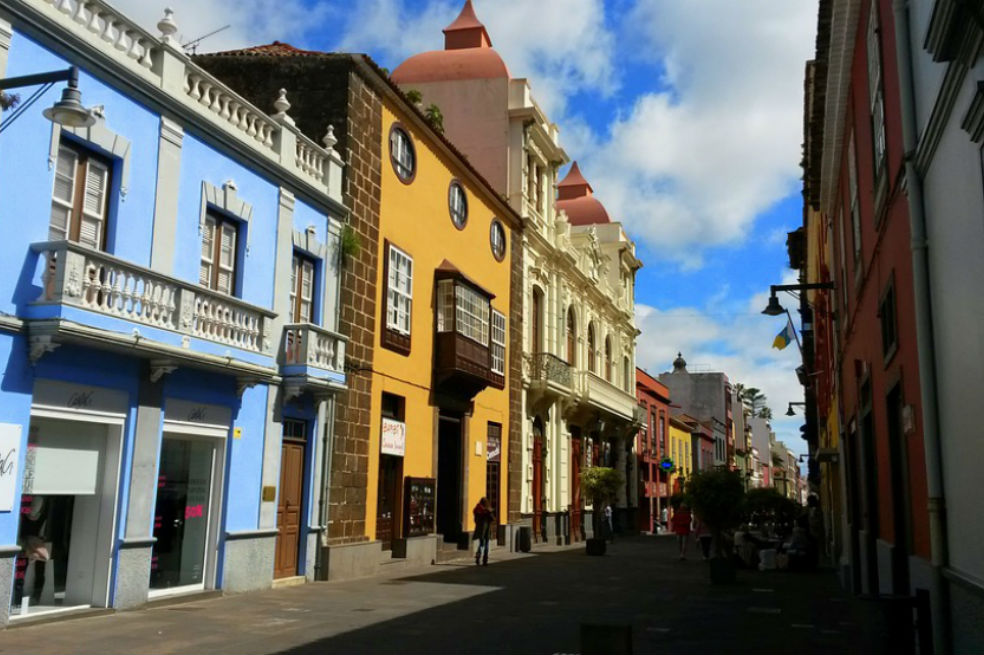Well, it is panto season again, so I have to use a panto title that broadly fits into the spirit of the season, don’t I? If you feel like shouting “Oh yes he did”, or “Oh no he didn’t”, please feel free. I really won’t be offended.
Do you ever feel that you have stepped into an alternative universe, or into an Alice in Wonderland situation? I certainly do, and I have been aware of it more in 2017 than any other year that I can remember. Post Truth, Fake News, Trump, ‘Little Rocket Man’ and Brexit have all added to a period of uncertainty and confusion that makes many of us ask if reality, as we know it, is finally spinning out of control?
Currently, it seems that change, accompanied by chaos and confusion, is the order of the day and we had better get used to it. It is within this theme that I am going to suggest an idea that will add a little more chaos and confusion. How about visiting a Spanish town where they talk backwards for your holiday this year?
A flight to the lovely Canary island of Tenerife and a trip to the town of La Laguna could be just the place to visit in our new ‘Alice in Wonderland’ world. Here visitors will witness, and maybe experience, first-hand the Verres language, which is the only place in the world where they speak back to front. I guess it could be compared to rhyming slang used in English, or a version of Pig Latin. Verres is not to be treated as a joke or taken too lightly, since enthusiasts in La Laguna are currently asking UNESCO to consider making it an ‘Intangible Cultural Heritage’.
Verres started life in a barber’s shop in La Laguna in the 1930s. The barber, Francisco Fariña, started using the language mainly to entertain and joke with customers whilst he cut their hair. In the 1930s, La Laguna was a sleepy town with very little going on, and people went to the barber’s shop to read the paper, gossip and put the world to rights.
Being quite a wag, Francisco invented a new way of taking scrambled letters and syllables of words to confuse customers, particularly from the rural areas, whom he liked to tease. Francisco’s language became so popular in his day that even students from the University of La Laguna began to ‘study’ the language with him in his barber shop ‘academy’.
Verres is currently spoken by around 60 residents of the town and is regarded as an amusing way of talking to friends. It is currently becoming more popular with its cultural heritage being taught and discussed in schools. Although dismissed as little more than a linguistic game by some, others point out that it has its own rules, whilst others use the language in their singing.
Currently, the European Union has 24 official languages and claims to be in favour of linguistic diversity across all of its member states. Maybe one day, Verres will also be included as one of its working languages. Well, I did say that we are stepping into an alternative universe, so why not?
History teaches us that chaos and confusion happen from time to time in all civilisations. Although I am not too keen on the chaos part of stepping into an alternative universe, I always like a new challenge. I know that many embrace change and long for a correction to an imperfect world order as they see it.
As individuals, I guess that there is little that we can do about it, other than to embrace change and see the positive side of what it has to offer and to keep an open mind. I wonder what Alice would have to say about it all? Happy New Year, or I should say, Yppah Wen Raey!
If you enjoyed this article, take a look at my websites: http://barriemahoney.com and http://thecanaryislander.com or read my latest book, ‘Living in Spain and the Canary Islands’ (ISBN: 9780995602724). Available in paperback, as well as Kindle editions.
Join me on Facebook: @barrie.mahoney
© Barrie Mahoney





